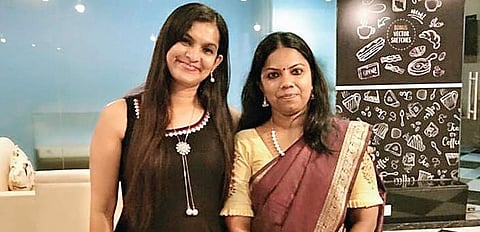

KOCHI: For Kabani C, translation was always part of her life. With translated Russian stories filling her childhood, she often dreamed of travelling to the country, watching snow stuck to the ground and playing with children whose cheeks resembled red apples.
“That kind of atmosphere was created in my home since I was a child. I remember using phrases in those stories in my own conversations,” she says. Hoping to ignite dreams and enhance the dreams of the coming generation, the Kozhikode native - since the past 15 years - has translated over 25 works into Malayalam.
Having shaped her formative years, Kabani’s stint in translating works began only after her graduation.
“I used to read extensively. My first translation was the speech Bengali author Mahasweta Devi made after winning the Jnanapith award in 1996. Her language was so powerful. To translate this is difficult, I remember feeling a dearth of words,” she says. Reading the end result, her father Civic Chandran, a famous Malayalam writer, gave a good review. But the cherry on top was the opinion of Kolkata-based journalist Vikraman Nair, who was a friend of the family. “He personally knew Mahasweta Devi. When I showed my translation to the veteran journalist, he said I was able to capture the powerful nature of her words,” says Kabani. That was a major confidence booster.
After Kabani’s post-graduation, she began doing translation work on a small-scale. “Soon my translation works were published in regional dailies and magazines,” she says. In 2005, she translated Israeli writer Amos Oz’s ‘To Know a Woman’. “This was a turning point in my translation career because until then I was still learning the tricks of the trade,” she says.
Kabani closely works with Samatha Publications in Thrissur, which is run by 29 women.“The publishing house aims to translate the works of firebrand women in contemporary times,” she says. Consequently, she translated ‘Unbowed: A Memoir’ by Wangari Maathai (which is currently in its fifth edition), ‘Letters from Burma’ by Aung San Suu Kyi and ‘Daughter of the East’ by Benazir Bhutto. “I was so satisfied with these works. These are lives that I haven’t been able to experience myself,” she says.
So what needs to be kept in mind while translating a work?
“Instead of the term ‘translator’, I prefer using ‘transcreator’. The job of a transcreator entails bridging two languages. This bridge should not be a visible one. The chemistry between the two languages is different. The words used will be different. You need to understand the inner dynamics of the original and translated text. Before translating, one should imbibe the cultural value of the original text. One needs to be aware of the mood set by the author. For this, you might need to read and re-read the original copy, read the author’s other works and understand his/her efforts. And finally, one needs to be attached to the spirit of the book like the author. See the work through the reader’s point of view. This was the advice given to me by my guru M Gangadharan,” says the assistant development commissioner, Rural Development department, Kozhikode.
Now, does that mean anyone can be a translator? “No,” Kabani is quick to say. “Some take it up as past time hobby. It is not a second-class activity. I have people calling me asking how to translate, what book can be translated and all. But no one ever calls up a writer and asks what he/she should write about. Anything that requires skill is art. Translation has the subtlest nuances one should be careful about. Failing to recognise this is what caused translation to go south in recent times,” she says. Kabani is currently working on translating ‘Being Reshma’, which is the biography of acid attack survivor Reshma Qureshi.